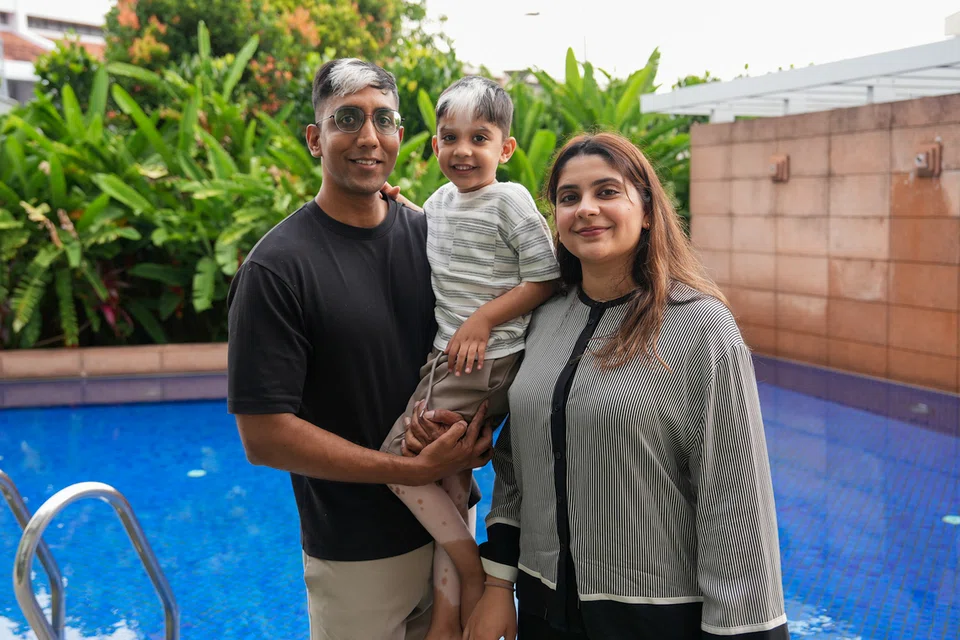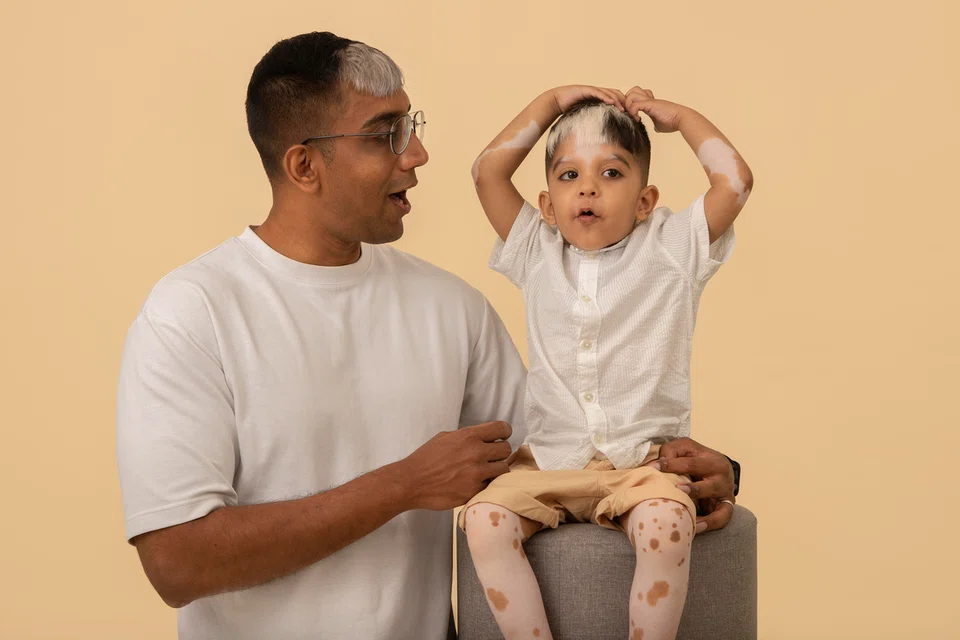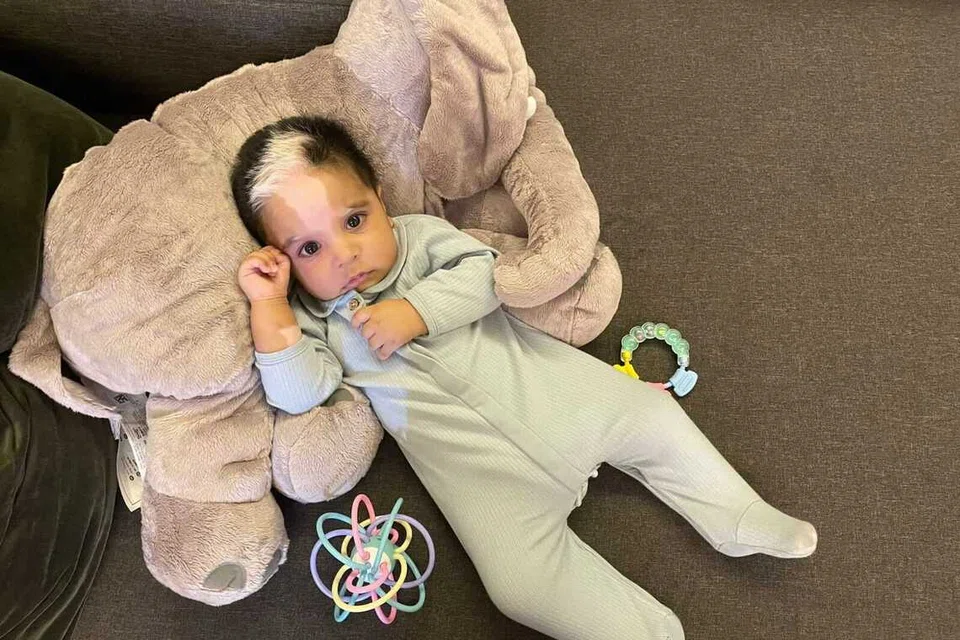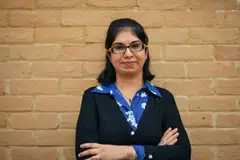Like son, like father
Mohamed Zain never fails to draw attention when he is out with his father. Both share similar striking streaks of white hair at the front of their heads.
For four-year-old Zain, it is a result of piebaldism, a rare genetic condition characterised by the absence of pigmentation in some regions of the skin and hair. For his father, Mr Azharuddin Mohamed Naseem, 36, it is an act of love and solidarity.
“When Zain was about two years old, he looked at himself in the mirror, touched his white hair, and then touched mine, which was black at the time,” recalled Mr Azharruddin, who runs a construction firm. “That was when I decided I’m going to bleach my hair to match his. I didn’t want him to feel alone.”
The bleaching process takes up to four hours and requires diligent weekly upkeep, but Mr Azharruddin has kept at it faithfully for the past two years. “As long as his hair is white, mine will be too,” he said.
Zain’s mother, Mrs Sania Azhar, 29, has a few small patches of white skin from the same condition, which runs in her family. While this gave Zain’s parents an inkling that their child might inherit piebaldism, they were still unprepared for the prominence of Zain’s markings at birth.
“As he was being delivered, I noticed the white hair immediately. At first, there was no skin pigmentation, but about 20 minutes later, the birthmarks appeared. We were shocked by how extensive they were,” said Mr Azharuddin.
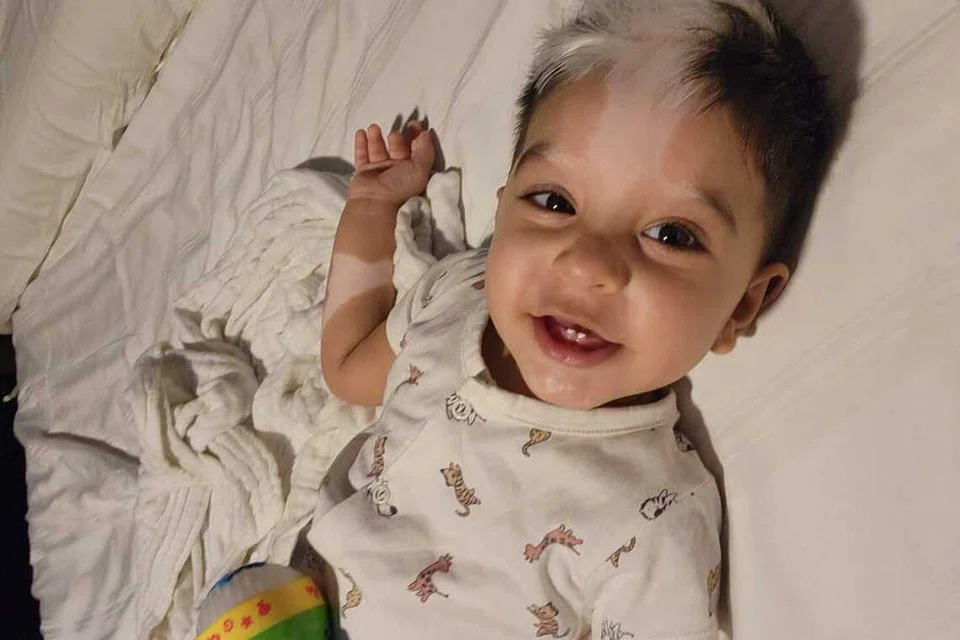
Globally, piebaldism affects less than one in 20,000 people. While it does not impair a child’s development, learning or overall health, it does make them more susceptible to sun damage due to the absence of melanin. Zain’s parents are careful to apply sunblock whenever he spends time outdoors.
The family has also had to navigate the varied reactions of strangers. Mrs Sania admitted she sometimes reacts sharply when people stare too long or take photos without permission. “Sometimes when people stare, I stare back. Once, an old woman screamed at Zain, calling him ‘an old man’,” she said, vividly recalling a memory.
Yet, they have made a conscious choice not to hide his condition. Rather than shielding Zain blindly, his parents have chosen to instil confidence in him.
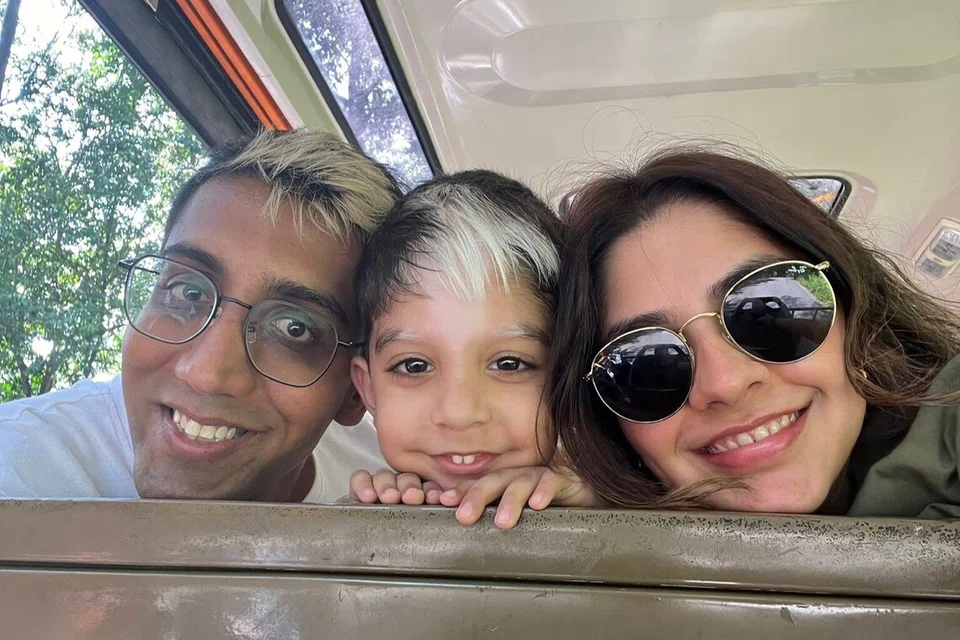
“Most people are kind,” Mrs Sania added. “Some even say Zain looks cool.” At his neighbourhood playground, Zain is simply known as “the boy with the white hair”.
Mr Azharuddin said that, as someone who used to be hot-headed, fatherhood has taught him to transform awkward encounters into learning opportunities. He now encourages Zain to wave or greet curious onlookers. More often than not, this simple gesture sparks a conversation and a chance to explain piebaldism to someone who has never heard of it.
“He’s taught me patience,” Mr Azharuddin said. “If I react with anger, that’s what my son will learn.”
Mrs Sania hopes that her son will fully embrace what makes him unique. “When I was younger, I always tried to hide my marks. I don’t want that for him. I want him to be proud of his skin,” she said.
“We have never hidden Zain. If we, as his parents, are ashamed or try to cover it up, how can we ever expect our child to feel confident?” Mr Azharuddin noted.
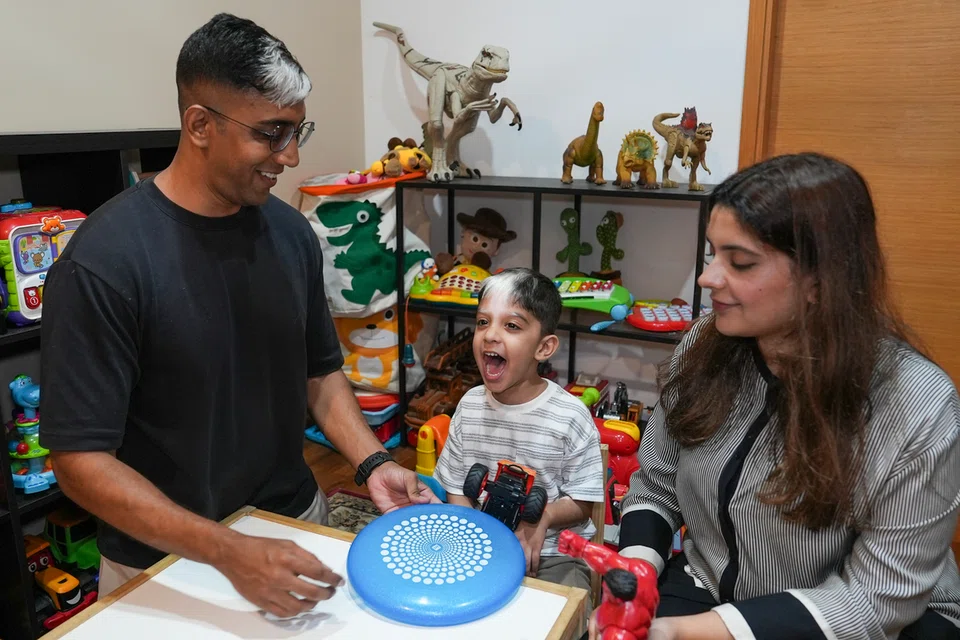
Their approach has already rubbed off on their son, who introduces himself to other children with quiet confidence: “Allah made me like this.”
As Zain grows up, his parents hope he will continue to face the world with the same sense of pride, reminding others that difference can be a source of strength.
